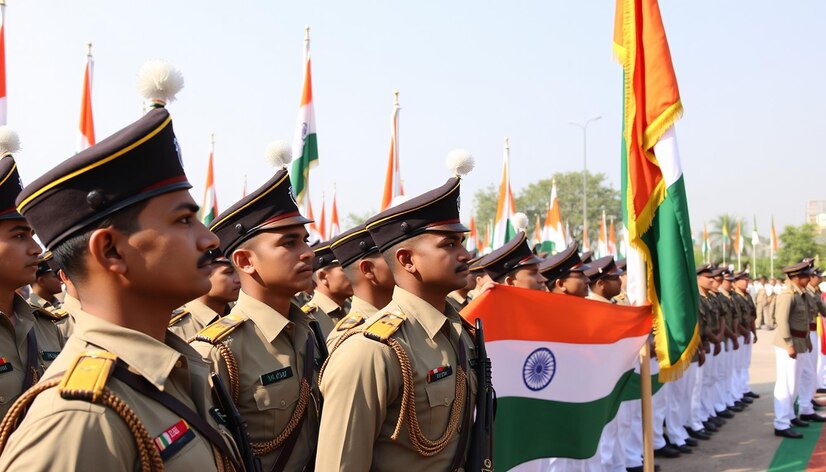The Air Force Common Admission Test is conducted by the Indian Air Force to select candidates for various branches and roles in the Air Force. If you’re dreaming of joining the Indian Air Force, The AFCAT exam is your gateway to building a rewarding career in this field.
The Indian Air Force officially released the AFCAT 1 2025 notification on December 1, 2024. A total of 336 vacancies have been created to recruit candidates for different positions in the Flying and Ground Duty (both technical and non-technical) branches of the Indian Air Force. So, if you’re interested in joining the Indian Air Force, it’s high time you commence your AFCAT preparation.
Candidates can register for AFCAT from December 2 to December 31, 2024. In this blog post, we’ll discuss the key dates and important details of the AFCAT 1, which is scheduled for February 2025, along with some effective AFCAT preparation tips.
The AFCAT 1 Exam 2025- Overview
The AFCAT exam is a national-level examination conducted by the Indian Air Force for the recruitment of commissioned officers in various branches of the Air Force. The exam is conducted two times a year, in February and December. This exam presents an excellent opportunity for individuals aspiring to build their careers as officers in the Indian Air Force.
Key Dates for AFCAT 1 2025
- Notification Release: 1st December 2024
- Online Registration Start Date: December 02, 2024 (11:00 AM)
- Online Registration End Date: December 31, 2024 (11:00 PM)
- Admit Card Release Date: February 2025
- Exam Date: 22nd and 23rd February
AFCAT 1 2025 Vacancy Details
The Indian Air Force has announced a total of 336 vacancies to select candidates for different roles in the Flying branch and Ground Duty (Technical and non-technical). Here are the details of the vacancies:
| Entry | Branch | Male Vacancies | Female Vacancies | Total Vacancies |
| AFCAT Entry | Flying | 21 | 09 | 30 |
| Ground Duty (Technical) | Aeronautical Engineer (Electronics) | 95 | 27 | 122 |
| Aeronautical Engineer (Mechanical) | 53 | 14 | 67 | |
| Ground Duty (Non-Technical) | Administration | 42 | 11 | 53 |
| Logistics | 13 | 03 | 16 | |
| Accounts | 11 | 02 | 13 | |
| Education | 07 | 02 | 09 | |
| Weapon Systems | 14 | 03 | 17 | |
| Meteorology Entry | Meteorology | 07 | 02 | 09 |
| NCC Special Entry | Flying | 10% of CDSE vacancies are reserved for PC, and 10% of AFCAT vacancies are allocated for SSC. | ||
Eligibility Criteria for AFCAT Exam
To appear for the AFCAT exam, candidates must fulfill the following eligibility requirements:
- Nationality: Indian.
- Age Limit: The age limit for candidates in the flying branch and ground duty is outlined below:
- Flying Branch: Applicants for the Flying Branch (AFCAT/NCC Special Entry) must be aged between 21 and 24 years.
- Flying Branch (commercial pilot license): 20 to 26 years.
- Ground Duty: The Age limit for Ground Duty (Technical and Non-Technical) is 20 to 26 years.
Educational Qualification:
Educational qualifications for AFCAT across various branches are specified as follows:
Flying Branch
- Minimum 60% marks in each Maths and Physics at 10+2 level and graduation with a minimum three years degree in any discipline from a recognized university with at least 60% marks or equivalent. OR
- A four-year BE/B-Tech course from a recognized university, securing at least 60% marks or equivalent. OR
- The candidate must have successfully completed Sections A and B of the Associate Membership exams of the Institution of Engineers (India) or the Aeronautical Society of India from a recognized university, securing at least 60% marks or equivalent.
Ground Duty (Technical)
Aeronautical Engineer (Electronics)
- A minimum of 60% marks in Maths and Physics at 10+2 level and a minimum of four years degree graduation/integrated post-graduation qualification in Engineering/ Technology from a recognized University. OR
- A candidate must have passed the Section A and B examinations of the Institute of Engineers or Aeronautical Society of India, achieving at least 60% marks or equivalent or Graduate Membership Examination of the Institution of Electronics and Telecommunication Engineers (IETE), completed through actual studies, with at least 60% marks or equivalent in the specified discipline.
- Applied Electronics & Instrumentation.
- Communication Engineering.
- Computer Engineering/Technology.
- Computer Engineering & Application.
- Computer Science and Engineering/Technology.
- Electrical and Computer Engineering.
- Electrical and Electronics Engineering.
- Electrical Engineering.
- Electronics Engineering/ Technology.
- Electronics Science and Engineering.
- Electronics.
- Electronics and Communication Engineering
- Electronics and Computer Science.
- Electronics and/or Telecommunication Engineering.
- Electronics and/or Telecommunication Engineering (Microwave).
- Electronics and Computer Engineering.
- Electronics Communication and Instrumentation Engineering.
- Electronics Instrument & Control.
- Electronics Instrument & Control Engineering.
- Instrumentation & Control Engineering.
- Instrument & Control Engineering.
- Information Technology.
- Spacecraft Technology.
- Engineering Physics.
- Electric Power and Machinery Engineering.
- Infotech Engineering.
- Cyber Security.
Aeronautical Engineer (Mechanical)
- Candidates should have secured a minimum of 60% marks in Physics and Mathematics at the 10+2 level, and possess a four-year degree or integrated post-graduation qualification in Engineering/Technology from a recognized university or must have successfully completed Sections A and B examinations of the Associate Membership of the Institution of Engineers (India). OR
- Candidate must have completed the Aeronautical Society of India exams with a minimum of 60% marks or equivalent in Aerospace Engineering through formal studies in the following disciplines.
- Aerospace Engineering
- Aeronautical Engineering
- Aircraft Maintenance Engineering
- Mechanical Engineering
- Mechanical Engineering and Automation
- Mechanical Engineering (Production)
- Mechanical Engineering (Repair and Maintenance)
- Mechatronics
- Industrial Engineering.
Ground Duty (Non-Technical)
- Administration: A graduate degree (minimum three-year course) in any discipline from a recognized university, with no less than 60% marks or equivalent, or the candidate must have passed Sections A and B examinations of the Associate Membership of the Institution of Engineers (India) or the Aeronautical Society of India from a recognized university, achieving at least 60% marks or equivalent.
- Logistics: Candidates should hold a graduate degree (minimum three-year course) in any discipline from a recognized university with at least 60% marks or equivalent, or have passed Sections A and B exams of Associate Membership in the Institution of Engineers (India) or the Aeronautical Society of India from a recognized university, with a minimum of 60% marks or its equivalent.
- Education: MBA, MCA, or MA/MSc in English, Physics, Mathematics, Chemistry, Statistics, International Relations, Defence Studies, Psychology, Computer Science, IT, Management, Mass Communication, Journalism, or Public Relations, with a minimum of 50% marks in aggregate in Post Graduation (minimum two-year program) and 60% marks in Graduation (both recognized by UGC or the Competent Accreditation Authority).
Application Fee
The fee for AFCAT 1 2025 is Rs.550, with additional GST charges applicable. However, the applicants appearing for the NCC Special Entry are exempted from paying the application fees.
AFCAT Preparation Strategy
Passing the AFCAT 1 2025 exam is a challenging task. However, with the right strategy, you can maximize your chances of success. Here are a few tips you can follow to enhance your AFCAT preparation.
- Understand the exam pattern and syllabus.
- Use the best books to understand core concepts.
- Solve mock tests and past papers consistently to improve your preparation
- Enroll in a renowned AFCAT training institute for expert guidance.
Conclusion
The AFCAT 1 2025 notification has brought exciting opportunities for you to kickstart your career in the Indian Air Force. With the announcement of key dates, it’s the right time for you to start your AFCAT Preparation to pass the exam with flying colors.



